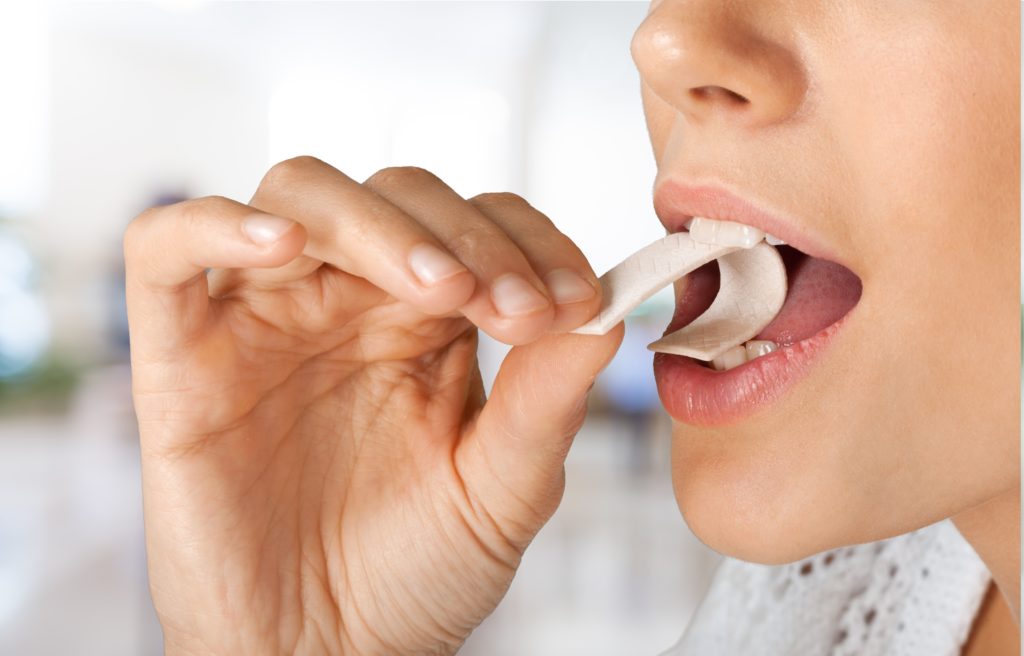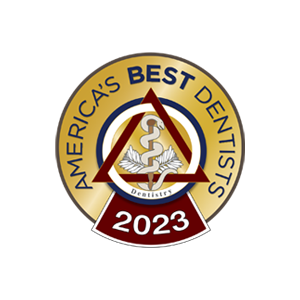
You may have heard that chewing gum can be good for your health, but when you think of gum, it’s usually bright pink bubbles or something sticky on your shoe. Could chewing gum actually be good for you? Chewing gum is not a substitute for a good regular daily oral care routine, but it can have surprising benefits for your dental health, mental health, and stomach health.
Chewing gum can have significant benefits for your oral health, but the type of gum you chew makes a significant difference. Chewing gum with a high sugar content can increase your chances of developing a cavity. Chewing sugar-free gum, however, can actually help protect teeth and increase overall oral health.
Sugarless gum can have significant benefits for your teeth, and can actually help prevent tooth decay. Studies have shown that chewing sugar-free gum after meals and snacks leads to increased saliva production, which has several benefits for your mouth. Additional saliva production helps rinse off the surface of your teeth, washing away food particles and helping to keep your teeth clean. Secondly, saliva neutralizes the acids released by the bacteria in plaque, which are harmful to tooth enamel. Third, because saliva contains calcium, the minerals generated by the extra saliva also help strengthen your tooth’s enamel. The enamel strengthening power generated by this extra saliva can actually reduce your risk of dental cavities forming.
Chewing sugar-free gum, with its acid neutralization benefits, can be particularly helpful at the very onset of a new cavity. When there is a microscopic cavity forming, before the cavity has become a physical hole in the tooth, gum chewing can help raise pH and reduce acidity to get needed calcium back into the tooth. But remember – it’s critical to choose a sugarless gum, not a sugary bubble gum, to experience these beneficial effects.
Sugar-free gum that is sweetened with xylitol can further increase these positive impacts. Both the act of chewing and the flavor of the artificial sweeteners in xylitol-sweetened gum stimulate the normal rate of saliva flow by up to ten times. Sugar-free gum sweetened with xylitol actually inhibits bacterial growth in your mouth, including the growth of Streptococcus mutans, one of the oral bacteria that cause cavities. When xylitol is present in the mouth, oral bacteria lose the ability to adhere to the tooth, stunting the process which causes cavities. By using xylitol over an extended period of time, the types of bacteria in the mouth actually change, and fewer decay-causing bacteria will survive on the surfaces of your teeth.
The saliva-producing power of chewing gum also helps combat conditions such as dry mouth and bad breath. But the benefits of chewing gum extend past just these positive effects on oral health. Chewing gum has also been shown to offer several surprising benefits to mental health and stomach health. Studies have shown that chewing gum can help keep you alert, focused and attentive, and even ease anxiety. Some studies have even shown indications that chewing gum can help stave off cognitive decline. Recent research has also found a connection between chewing gum and metabolic rates, with one study which measured how many calories participants burned while chewing gum finding that it could raise metabolic rate by up to 15 percent. Chewing gum can also help with nausea and heartburn (thanks again to the increased saliva production!), and can stimulate bowel function.
Regardless of these extensive benefits, chewing gum is not a substitute for good oral hygiene practices. At La Mesa Hills Dentistry, we remind our patients to brush teeth twice a day and floss daily. While chewing sugar-free gum can have positive effects, a good daily oral care routine is the most important way to take care of your oral health!
At La Mesa Hills Dentistry in La Mesa Hills, California, we encourage all of our patients to maintain good oral care routines. If you are going to use chewing gum, choose a sugar-free variety. Have questions? Just ask us! LMHD is here to help with any questions you may have. Give us a call at (619) 469-2902 or click here to schedule an appointment today!


